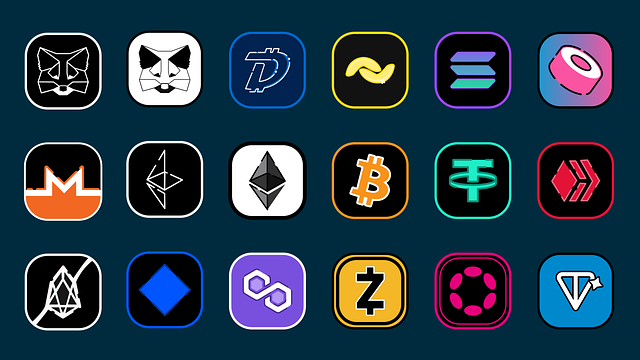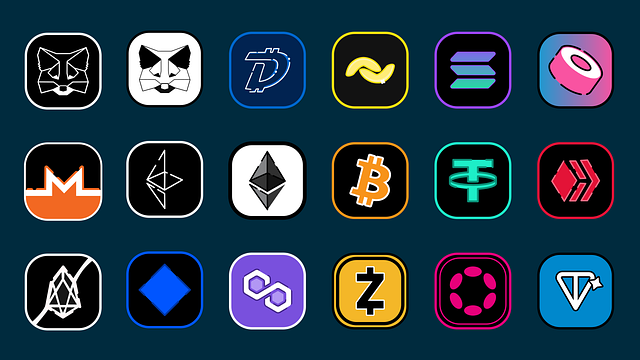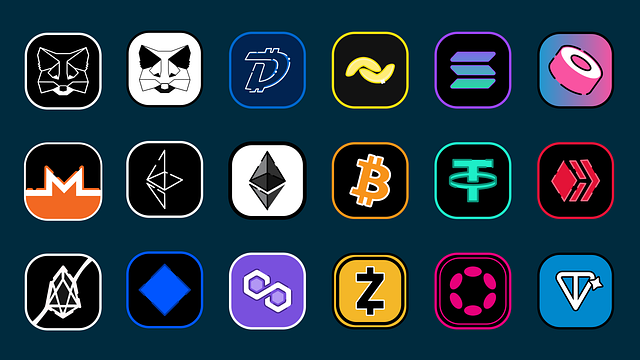Solana, powered by Proof-of-Stake, distinguishes itself through its decentralized architecture and high performance. Validators, who stake SOL tokens, secure the network and process transactions, ensuring data integrity and preventing fraud. This system fosters competition among top performers, designated as "Super Users," for optimal efficiency. By eliminating miners, Solana offers energy-efficient, fast, and affordable transactions, attracting developers building decentralized applications (dApps) like DeFi platforms and NFT marketplaces. Despite security challenges, ongoing innovations aim to solidify Solana's position as a blockchain game changer across industries.
“Solana, a leading blockchain platform, has garnered attention for its innovative approach to decentralization. This article explores the heart of Solana’s network security through the lens of its validator system. We’ll dissect how validators contribute to the network’s integrity, understanding their role in consensus mechanisms and the incentives that drive trustless participation. Delve into the challenges faced and the potential enhancements shaping Solana’s future, while uncovering real-world applications that demonstrate the power of this decentralized architecture.”
- Understanding Solana's Decentralized Architecture
- The Role of Validators in the Solana Network
- How Validators Ensure Network Security
- Consensus Mechanisms in Solana: A Deep Dive
- Incentives for Validators: Motivating Trustless Participation
- Challenges and Future Enhancements for Network Security
- Real-World Applications of Decentralized Solana
Understanding Solana's Decentralized Architecture

Solana, a blockchain platform designed for high-performance and scalability, follows a decentralized architecture that forms the backbone of its network security. At its core, Solana leverages a unique consensus mechanism known as Proof-of-Stake (PoS), which stands in contrast to the more traditional Proof-of-Work (PoW) methods used by other blockchains. This shift towards PoS not only enhances energy efficiency but also fosters a decentralized validator system.
Validators, in this context, are participants who secure the network by staking their tokens and validating transactions. They play a crucial role in maintaining the integrity of the Solana blockchain, ensuring that all operations adhere to predetermined rules. This distributed validation process significantly reduces centralization risks, making Solana highly resistant to manipulation or single points of failure. As a result, the platform offers robust security features while facilitating fast and affordable transactions, characteristics that have garnered significant attention from developers and users alike.
The Role of Validators in the Solana Network

In the decentralized world of Solana, validators play a pivotal role in securing and maintaining the integrity of the network. These individuals or organizations are responsible for participating in the consensus process, a crucial aspect of blockchain technology that ensures data validity and prevents fraudulent activities. By running nodes and staking their SOL tokens, validators contribute to the network’s overall security and efficiency.
The Solana network relies on a unique validator selection mechanism, where the top 24 validators, known as “Super Users,” are elected based on their stake size and activity. This system fosters a competitive yet cooperative environment, encouraging validators to optimize their operations for the benefit of the entire ecosystem. Through their collective efforts, these Super Users ensure that transactions are processed quickly, securely, and in a manner that aligns with the network’s decentralized principles, solidifying Solana’s position as a leading blockchain platform.
How Validators Ensure Network Security

Solana’s network security is fortified by its unique system of Validators, who play a crucial role in maintaining the integrity and safety of transactions on the blockchain. These Validators are responsible for verifying and processing blocks of transactions, ensuring that each one adheres to the Solana protocol’s strict rules. By consensus mechanism, Validators must agree on the validity of transactions, preventing any malicious activities or fraudulent attempts.
Each Validator operates a full node, independently running the Solana software, which enables them to check and cross-reference transaction data. This decentralized approach ensures that no single entity controls the network, enhancing overall security. The process of validating transactions and reaching consensus is an intricate dance, requiring robust computational power and an unwavering commitment to the network’s well-being.
Consensus Mechanisms in Solana: A Deep Dive

Solana employs a unique and innovative approach to decentralization through its use of a proof-of-stake (PoS) consensus mechanism, which sets it apart from many other blockchain networks. This system allows Solana to achieve high transaction throughput while maintaining strong security. Instead of relying on miners, Solana utilizes validators who stake their tokens to secure the network. Validators are chosen based on the amount of SOL they hold and the number of blocks they produce, ensuring a distributed and responsible participation in the consensus process.
The PoS mechanism in Solana enables efficient validation of transactions while minimizing energy consumption. Each validator is responsible for producing new blocks and reaching a consensus on the state of the blockchain. By using a decentralized network of validators, Solana maintains a robust and secure infrastructure, making it a compelling choice for developers building decentralized applications (dApps). This system promotes fairness and accessibility, as anyone with a significant stake in SOL can participate, fostering a truly democratic and inclusive blockchain environment.
Incentives for Validators: Motivating Trustless Participation

In the world of Solana, validators play a crucial role in maintaining the network’s decentralization and security. These individuals or entities are incentivized to participate trustlessly, ensuring the network’s integrity. One of the key motivators is the reward system; validators earn Solana tokens for each block they successfully produce and validate. This economic incentive aligns with the global goal of decentralized consensus, as it encourages more participants to join the network, increasing its overall security.
Additionally, the trustless nature of the process ensures that no single entity controls the network’s fate. Validators are distributed globally, making it difficult for malicious actors to manipulate the system. This decentralized approach, coupled with the promise of rewards, fosters a vibrant and secure environment where Solana can continue to innovate and grow, setting itself apart in the blockchain space.
Challenges and Future Enhancements for Network Security

The Solana network, while praised for its high-speed and low-cost transactions, faces challenges in maintaining robust security. One significant concern is the potential risk posed by a centralized authority, as the power to validate transactions lies within a group of elected validators. This structure could create vulnerabilities if not carefully managed, allowing malicious actors to influence the network’s direction.
Looking ahead, Solana’s developers and community are actively working on enhancements to address these security concerns. Future updates may include more decentralized validation mechanisms, improved consensus algorithms, and enhanced incentives for secure participation. By embracing these innovations, Solana aims to evolve into a stronger, more resilient blockchain ecosystem, ensuring its position as a leading player in the cryptocurrency space.
Real-World Applications of Decentralized Solana

The real-world applications of decentralized Solana are vast and diverse, showcasing the network’s potential to revolutionize various industries. Beyond its role as a blockchain for cryptocurrencies, Solana offers a robust infrastructure for building decentralized applications (dApps). Developers can leverage its high-speed transactions and low fees to create everything from decentralized finance (DeFi) platforms to non-fungible token (NFT) marketplaces.
For instance, Solana’s scalability enables the creation of complex gaming ecosystems where in-game assets are represented as NFTs, ensuring transparency and ownership. In supply chain management, Solana can facilitate real-time tracking and verification of goods, enhancing efficiency and reducing fraud. These use cases only scratch the surface, demonstrating that Solana’s approach to decentralization has far-reaching implications for a wide array of sectors, solidifying its position as a leading blockchain in the market.
Solana’s decentralized architecture, driven by its network of validators, offers a robust and secure blockchain ecosystem. By incentivizing trustless participation, Solana ensures data integrity and network resilience through consensus mechanisms. While challenges remain, the platform’s innovative approach to decentralization positions it as a leading contender in the blockchain space, with real-world applications that continue to expand. Further enhancements will only solidify Solana’s place as a game-changer in decentralized technologies.





Leave a Reply
You must be logged in to post a comment.